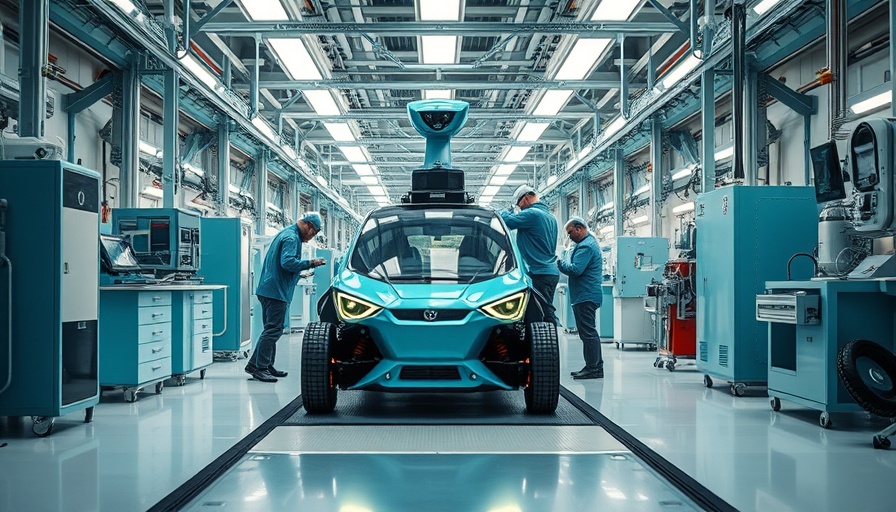
Zoox's Ambitious Leap into Robotaxi Manufacturing
Zoox, the autonomous vehicle subsidiary of Amazon, has recently inaugurated a vast 220,000-square-foot manufacturing facility in Hayward, California, marking a significant milestone in the tech industry's evolution towards self-driving vehicles. The new site is poised to produce over 10,000 robotaxis annually, projecting a future where self-driving technology redefines urban mobility. With its unique 'toaster-shaped' design, Zoox's vehicles stand out from competitors, positioning the company at the forefront of the robotaxi market.
Overcoming Hurdles on the Road to Launch
While the anticipation builds for Zoox's commercial launch later this year, the company faces challenges that go beyond manufacturing capabilities. Safety is a primary concern, and recent incidents involving the software of their test vehicles have prompted recalls and investigations. Zoox's commitment to deploying completely autonomous vehicles, devoid of traditional controls like steering wheels, creates unique logistical challenges for emergency responders and operational readiness. As CEO Aicha Evans emphasizes, education around these innovative vehicles is essential for public acceptance.
Understanding the Competitive Landscape of Autonomous Vehicles
In a marketplace crowded with competitors like Waymo and Tesla, Zoox distinguishes itself by emphasizing the purpose-built aspect of its robotaxis. While Tesla anticipates rolling out a taxi service using modified Model Y vehicles in Austin, Zoox aims to set itself apart with a fully autonomous vehicle designed specifically for ridesharing without manual intervention. This ambitious approach may redefine consumer expectations and vehicle utilizations in urban settings.
The Future of Sustainable Transportation and Business Opportunities
Zoox’s initiative reflects broader tech industry trends towards sustainability and innovation in transportation. By prioritizing purpose-built vehicles, Zoox is paving the way for sustainable, green business practices in the autonomous vehicle sector. The shift to electric, self-driving vehicle solutions not only aligns with emerging environmental regulations but also opens up new avenues for venture capital funding and business partnerships focused on sustainability.
The move to establish a local manufacturing base underscores the importance of Bay Area startups in shaping the future economy, enhancing the local business landscape, and contributing to Silicon Valley’s tech ecosystem. For business professionals, keeping an eye on how Zoox navigates these challenges will be crucial for understanding evolving market dynamics.
As the world leans into digital transformation, Zoox stands as a stern reminder that innovation comes with its hurdles. With careful navigation of its setbacks, Zoox could cement itself as a leader in the movement towards sustainable transportation.
 Add Row
Add Row  Add
Add 



Write A Comment